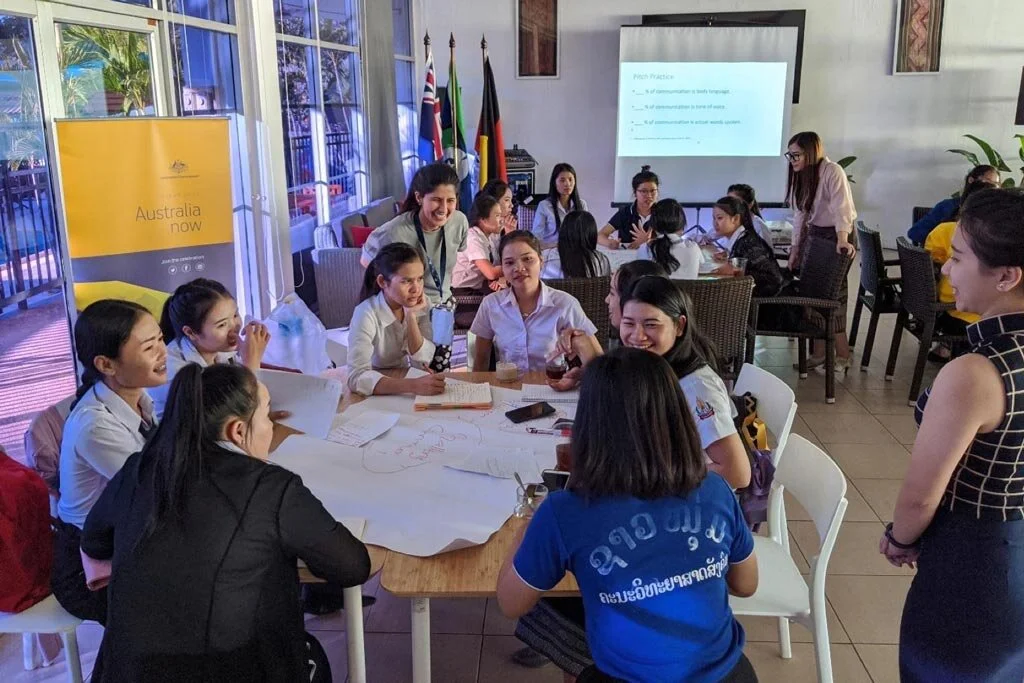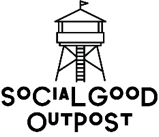Having Critical Conversations In Difficult Locations
There is an art to having difficult conversations - and I never learned it in school. I never learned it in university either, and remain to this day to seemingly scrape my way through the conversations and events that matter most, navigating in such a way as to just keep me out of trouble.
But I want to talk about critical conversations, because on our most recent trip to Laos as part of the Australia now Youth Entrepreneurs & Leaders Speakers Series delegation, I was curating a program seemingly saturated with complex things to be balanced. In fact, I was curating a program on LGBTI+, (first difficult element), in one of the least developed countries in the region, (second difficult element), whilst trying to maintain important people-to-people and institutional relationships, (third difficult element), in a high-pressure environment and tight timeline, (fourth, fifth and maybe even sixth difficult element). And, the dollar stopped with me. If it went wrong, I was the one who would have to bear responsibility.
Through this series, we’re seeking to bring you the freshest insights and coverage of the Youth Entrepreneurs & Leaders Speaker Series, an initiative funded and supported by the Australian Government, curated and designed by Australian social enterprise Social Good Outpost.
What, where and how to run these events, and with whom, were critical. On reflection, I want to share more of these experiences, because the most critical conversations we need to have in life will always – always – be hard. And through sharing my recent experiences, and publicising what was a truly remarkable week of events on the topic of LGBTI+, I can also build understanding and empathy with the people – two of the most important elements to address in any difficult conversation.
I know the feeling of fear that comes with being LGBTI+ anywhere that it is not accepted. My heart rate rises, double-check in the mirror – do I stand out too much? I make sure I use non-gendered pronouns when describing my partner, and juggle how much I share of my professional and private work. I even go as far as using generalised ‘community development’ language, rather than language around LGBTI+ human rights work and advocacy. Above all, don’t accidentally slip up.
I’m particularly careful internationally. It can sometimes be hard enough to know what people in Australia think about LGBTI+ communities, let alone what people in vastly different cultural and social contexts think. In fact, for many of the countries I have been heavily involved with this year, there are varying levels of action criminalising LGBTI+, ranging from – dare I say it – ‘light’ criminalisation, to more severe measures, including the death penalty.
When we think about what Australia can add to these conversations, Australia has not always been a leading force. However, in social change and social entrepreneurship, and more recently LGBTI+ rights, I feel particularly proud. We have an incredible and growing range of governmental bodies, incubators and societal drive for more ethical business and inclusive societies.
Furthermore, youth leaders in particular across our country have a phenomenal wealth of practical experience pioneering change that other industries (and sometimes, other demographics) have ignored.
Our most recent Laos speaker, Mikhara Ramsing, for instance, exemplifies this. Mikhara came to the fields of both social entrepreneurship and LGBTI+ advocacy after a decade-long journey of self-acceptance surrounding her identity. After quitting her corporate job, she launched directly into creating an organisation aiming to provide resources and support for Culturally And Linguistically Diverse (CALD) and gender and sexuality diverse (LGBTI+) Australians - Ethnic Plus.
The need was clear. In Australia at the time, the marriage plebiscite was in full swing, yet most of the advocacy, and resources provided were to a very select audience, not inclusive of many of the ethnically and culturally diverse communities in Australian communities.
In many ways, the circumstances for LGBTI+ communities in Laos is similar to Australia. Currently few legal protections exist against discrimination, and while homosexuality is not criminalised, neither is it very socially accepted.
Socially, Lao people are incredibly community-orientated, and some of the most wonderful and giving people we met. Through sharing a border with Thailand, they are familiar with some aspects of LGBTI+, particularly trans culture. Yet many elements of this topic were still very new, and one of the most common pieces of feedback was how the community needed outsiders invested in topics like this to come in and to open up the conversation.
Often it is not that communities need leading, but they do however need space. Courage is not always automatically gained, but often role-modeled. This I believe is a big opportunity for Australia, and is inclusive of social change-making communities.
We are very proud to say that together with the Australian Embassy in Laos and the Laos Australia Institute, we ran the very first LGBTI+ event like this open to the public (to our knowledge). Titled ‘Rainbow Stories’, it was an exploration of what it meant to be LGBTI+ in Australia and Laos.
Not only did we have phenomenal trans-women, gay men, and Mikhara as a queer woman on the panel, but we also had the parent of an LGBTI+ Lao person – the country’s first trans-woman doctor, Dr Inleusa Basengkham. Dr Basengkham’s father was a man in his 70s from a remote rural village, and while describing his daughter and how proud he was of her, there was not a dry eye in the room.
In a country where we were forbidden to talk about the topic on radio or at some of our events, it was a stark contrast. After meeting with a number of activists from the LGBTI+ community (who are all also incredible social entrepreneurs, because if your human rights are being denied in one area you are more likely to fight for them in another), we knew the bleak reality of some of these contemporary issues. From regular violence occurring throughout homes and on the streets, to the lack of spaces to gather and meet, and the difficulty of reconciling cultural identity with sexual or gender identity. Local media adamantly refuse to cover the topic (or at least in a sensitive way), and for women particularly, the difficulty of being heard and recognised in a patriarchal society continues to influence other challenges surrounding being LGBTI+, while being obstructive to discourse surrounding this topic.
Sometimes I actually cannot believe the impact of events like our Rainbow Stories event in Laos. For me, curating this program with the Australian Government has been nothing short of an incredible honour.
Focusing on the topic of youth collaborations particularly around leadership and social enterprise, has already been one of the best projects I have ever undertaken. But running delegations like this are particularly close to the heart.
When I think of the pain of LGBTI+ people globally, those of diverse genders and sexualities, it is sometimes hard to imagine their circumstances. Even for myself, my identity has become so normalised that it is something that I almost never think about – a true sign of privilege. And yet, it wasn’t too long ago that I felt the crushing feelings of isolation and denial of identity. And I think it is one of the most important things that we as humans across cultures can seek to understand – our basic human condition which crosses all forms and boundaries. It is the basis of powerful conversations, and even more powerful social change.
As a subject for social entrepreneurship and change, the topic of LGBTI+ is important, but often completely ignored by the entrepreneurship cohort, remaining the focus primarily for non-profits and advocacy organisations.
While each delegation so far has had its own theme – first it was HR & tech with Dr Cameron Cliff, then mental health with Nicole Gibson, and now LGBTI+ inclusion and diversity with Mikhara Ramsing - all have also had an important under-current of social change and social entrepreneurship.
I believe this combination created a powerful launching pad for advancing social issues in countries with varying levels of social and legal perspectives. Simply put, money talks. Where policy was often found to be too slow, or society lagging behind in human rights, entrepreneurship was providing a way forward to propel action and change for social issues. In many ways, this is often the core reason we go into social entrepreneurship in the first place.
Overall, the events that we held on these difficult topics, and in difficult contexts, were powerful. Often, the most powerful events are the strongest – while being that little bit harder to execute or organise, for whatever reasons. But that is exactly why we should make these programs possible. As Australians, I believe we have a particular role, if not in providing thought-leadership, then in role-modelling and opening up the rights we have achieved, so they may be gained more broadly. And that, is exciting.
Australia now is a public diplomacy program of the Australian Government, spearheaded by the Department of Foreign Affairs and Trade in a country or region of significance each year. The program celebrates Australia’s creative excellence, diversity and builds relationships for the future. This year, Australia now has a focus on youth, aiming to engage youth audiences and cement long-standing ties between Australia and surrounding member states of the Association of Southeast Asian Nations (ASEAN). Social Good Outpost has partnered with the Australian Government to deliver the Youth Entrepreneurs & Leaders Speaker Series across ASEAN in 2019 and 2020. Follow our events & updates at: www.socialgoodoutpost.com.au/Australia-now
We thank the generosity of the Australian Government for funding and supporting the Youth Entrepreneurs & Leaders Speaker Series.











